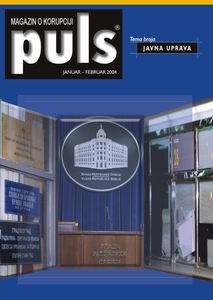Reorganizacija sudova u Srbiji
Reorganisation of the Courts in Serbia
Author(s): Mijodrag RadojevićSubject(s): Law, Constitution, Jurisprudence
Published by: Centar za menadzment
Keywords: Serbia; reform legislation; corruption
Summary/Abstract: The inefficiencies and slowness in the work of the Serbian courts are largely caused by the poor organization of jurisdiction of the courts. This organization was established by the Law on the Courts in 1991, and it led to overloading the courts with cases and imbalances and inconsistencies in the judicial practice. In sum, these deficiencies have caused problems in the functioning of the courts as guarantors of civil liberties and rights. Hence, the reform of the judiciary is the very backbone of the overall reform effort in the context of democratization and the building of a rule of law in Serbia. The Serbian Parliament enacted a new Law on the Organization of the Courts already in November 2001, and this Law envisaged significant changes in the organization of judicial work in Serbia. The crux of the provisions of the Law included changes in the jurisdictions of the courts, and the establishment of two new types of courts, namely Courts of Appeal, and the Administrative Court. It was envisaged that Courts of Appeal would be established as second-instance courts in the cities of Belgrade, Niš, Kragujevac and Novi Sad, and they would take over the jurisdiction of the District Courts, and that of the Supreme Court of Serbia in deciding on appeals lodged after decisions having been reached by lower-level courts. The Administrative Court was envisaged as a court dealing with administrative procedures, and the Supreme Court, in the light of the new Law, was seen as being in need of some reduction of its workload through the transfer of some jurisdictions to the Courts of Appeal and the Administrative Court. The Trade Court and the High Trade Court, earlier called “Economic Court” and “High Economic Court”, as specialised courts, were envisaged as retaining their jurisdiction in deciding on economic matters.
Journal: Puls
- Issue Year: 2004
- Issue No: 01-02
- Page Range: 15-17
- Page Count: 3
- Language: Serbian

